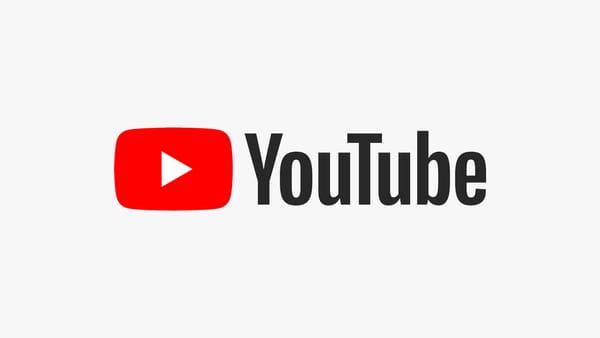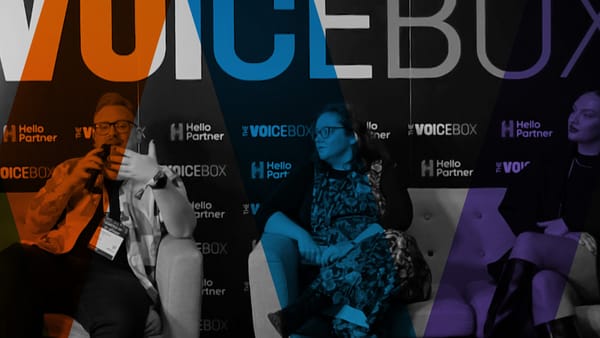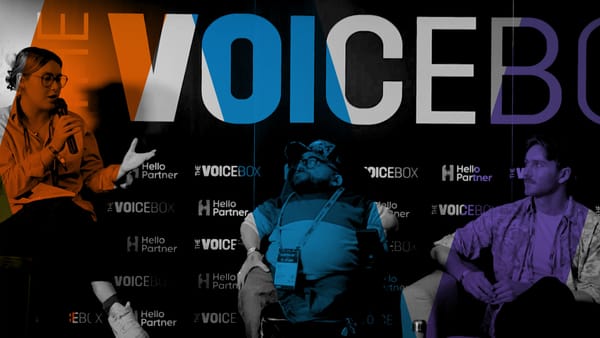In an AMA thread from earlier this month, one Reddit user asked Bill Gates what the next significant step in technology will be. In his reply, Gates pointed to AI as the ‘big one’, arguing that Web3 and the Metaverse weren’t ‘that big’ or ‘revolutionary’.
Gates isn’t alone in his opinion. Clearly, his feelings are in line with Microsoft, which announced last Monday that it will start selling ChatGPT through its Azure OpenAI Service, as part of its ongoing partnership with OpenAI.
ChatGPT is already being exalted for its ability to produce high quality written copy and content in mere seconds, which begs the question: Will it replace the jobs of marketers? Particularly in the affiliate realm, generating content and copy for socials and SERPs is a huge part of the job, so what will the ramifications be if an AI can perform this much faster than a team of humans?
As ChatGPT’s application grows, we wanted to better understand the technology, so we spoke with Gergo Csiszar, Founder and Managing Director of Post For Rent, about its uses, benefits, and limitations in the world of partnerships.
What is ChatGPT?
ChatGPT has exploded in popularity since its initial launch in November 2022. The language model has generated widespread excitement and acclaim for its impressive ability to accurately answer questions, both big and small, as well as produce computer code, essays, poems, and fictional stories.
The ‘GPT’ in ChatGPT stands for Generative Pre-trained Transformer. The technology works by learning from the massive amount of text and data available online. It then responds to user queries by predicting the next word in a sentence based on the context of the previous words.
For example, here’s a limerick about influencer marketing we asked it to produce earlier today:
An influencer with lots of fans
Promoted products with her quick hands
She made a quick buck
With a simple "thumbs up"
And left all her followers in a trance.
As you can see, the copy isn’t perfect per se, it repeats the word ‘quick’ and the rhythm is slightly off in the second line. But these flaws can be quickly corrected by a human editor, and the fact that it generated this in mere seconds is seriously impressive.
So, what opportunities does ChatGPT open up for marketers?
ChatGPT’s Potential in the Partnership Economy
In Gergo’s opinion, ChatGPT and other GPT models have the potential to be a very powerful resource for marketers. “If tech providers tweak and integrate them the right way,” Gergo says, “all other platforms lacking these features will fall behind so much that they will soon seem absolutely useless.” But, why is this?
Recently, Post For Rent integrated Text-Davinci-003 (OpenAI’s most capable GPT-3 model) into its agency software suite. The model wrote its own code for API integration and was “about 99% successful”, requiring only a few changes. Since experimenting with the language model, Gergo has found it helps his team “save hours a day on emails, clients pitch inputs, social media copies, and fact checking on google”. Not only this, Gergo argues that when integrated correctly, AI-driven models bring a wealth of other benefits, including: increased accuracy in data analysis; faster decision-making; faster customer service response times; increased efficiency; improved user experience; and more accurate targeting of advertising campaigns based on customer preferences.
The more the model is used to produce copy, the more accurate the copy becomes. AI models are also handy for visual content. Gergo explains, “Our Art Director has already been using Midjourney and DALL-E 2 for over a year now to generate branded content. He says that Art Directors not experimenting already will fall behind exponentially.”
For Gergo, the next step is to merge all of the company’s influencer data, transactions, and campaign reports from the past six years into the model, to build a media planning tool that can automatically generate an entire campaign just by inserting the brief received from clients.
Gergo adds, “By utilising tech solutions provided by GTP-3, not only will agencies be able to enhance multiple core workflows, but they will also be able to provide their customers with a much better overall experience. GPT Models won’t replace you. Companies using GPT Models will replace you. It is already a game changer for the daily operations.”
What’s the catch?
Surely, there are challenges with this kind of technology. How can brands ensure that their AI-generated content is accurate and up-to-date? Gergo advises that brands should put a process in place to review and approve all AI-generated content before publishing – particularly in the beginning of their application. “There might be different regulations and factors in some fields (especially for global brands and offices) that the AI models aren't aware of, so brands need to make sure that their AI-generated content does not violate any applicable laws or regulations.”
Ad-tech platforms can be a helping hand here. “We can’t expect all the account, social, content, and copy team members to master the UI of OpenAI and do better work every day,” Gergo says, “For great results, executives need to make sure they provide the best environment for their teams. This means further developed integrations, with short-cuts, easy interfaces, prompts, and presets. He adds, “Without smart integrations I think most of the people experimenting with any GPT products will end up having results they aren't able to put in use.”
Should brands, agencies and networks have rules or guidance in place?
Absolutely. Gergo emphasises that brands, agencies, and networks need to ensure that their AI-driven product, or GPT model, is being used in a responsible and ethical manner, that it is not being used to manipulate or exploit users, and that it is providing value to the user.
“Rules and guidance will usually come from integrations,” Gergo explains, “GPT models can bring the internet to you in seconds, but you need to know how to instruct them. Every company will have to find the best ad-tech integrator suitable for their daily operation, as not all the companies out there will have the time and/or resources to have a team carrying out and personalising their own integration.”
The future of GPT models and marketing
The question remains: Will language models replace marketers? In their current iteration, the answer is no.
When it comes to producing written copy or content, it seems that GPT models are excellent for quickly giving you that ‘first draft’, a hunk of raw material which you can then trim, shape and spruce to your liking. But they are not producing content of a quality that can stand on its own.
However, the evidence suggests that ChatGPT and its fellow language models can clearly make a marketer’s life easier when properly utilised. Artificial intelligence is projected to see greater investment and implementation within digital marketing this year. In the results of a recent poll we put out, the relative majority of respondents (32%) said that it is likely they’ll be investing in AI this year. With models like ChatGPT growing in popularity, and perhaps ready to blow up even more thanks to an upcoming Microsoft integration, could 2023 be the year we see AI go mainstream in the digital marketing sphere?
This is what ChatGPT itself has to say on the topic:
Marketers, with ChatGPT's help,
Can generate text like a yelp.
They'll create content fast,
That will make their campaigns last,
And with conversions, their pockets will swell.









